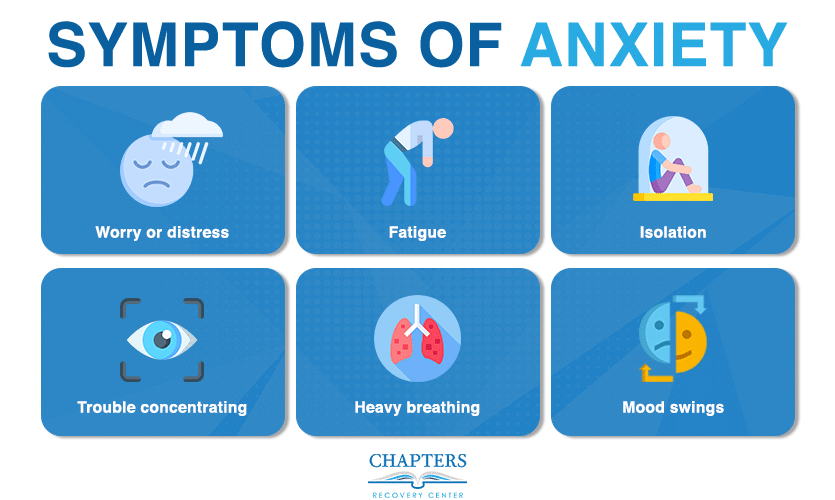Recovering from addiction can be challenging; sometimes, it feels like a never-ending journey. But don’t worry, there are ways to make it a little easier and more rewarding. At Chapters Recovery Center in Danvers, Massachusetts, we believe in teaching people helpful coping skills for addiction to make their recovery journey smoother and reduce the chances of relapse.
What are Coping Skills?
Coping skills are things you can do or qualities you can develop to help you deal with tough situations. They help you handle your emotions, thoughts, and actions when you’re feeling stressed. Coping skills come in handy in different areas of life, like work, school, and relationships.
Benefits of Healthy Coping Skills
Having healthy coping skills can make a big difference in your life. They can make stressful situations easier to handle and help you take steps toward solving problems. Coping skills also encourage adaptability, motivation, and openness to new solutions.
For people struggling with addiction, it’s especially important to have healthy coping skills. These are positive strategies that can help you constructively manage stress and emotions. Here are some benefits of having healthy coping skills for addiction:
- Reducing the risk of relapse
- Improving mental health
- Increasing self-awareness
- Better stress management
- Improving relationships
- Increasing motivation and confidence
Developing and practicing healthy coping skills takes time and effort, but it’s worth it. These skills can make your recovery journey smoother and help you build a happier and healthier life.
Examples of Unhealthy Coping Mechanisms
Unhealthy coping mechanisms for addiction are ways that people use to deal with stress or difficult emotions that are harmful and not helpful. Here are some examples of unhealthy coping mechanisms for addiction:
When people feel overwhelmed by negative emotions or stressful situations, they may turn to alcohol or drugs to try and cope. While this might temporarily make them feel better, it can make things worse in the long run. Using substances excessively can lead to serious health problems including addiction, overdose, and even death.
Instead of facing their problems, some people choose to avoid or ignore them. They might do this by avoiding relationships, job opportunities, social events, or family gatherings.
This type of avoidance behavior can be a way to distract themselves from difficult emotions or situations. However, it’s not a healthy way to cope because it doesn’t solve the underlying issues.
Denial is when someone refuses to admit that they have a problem or that it’s as serious as it is. This can be especially harmful to people struggling with addiction because it prevents them from seeking help and getting the support they need. Denial can also worsen addiction’s negative effects, such as health problems, relationship issues, and legal troubles.
Some people with addiction may engage in self-harming behaviors to cope with their emotions or situations. This can involve intentionally hurting themselves, which can lead to physical harm and long-term health problems. Self-harm is dangerous and can make addiction and emotional well-being worse.
Compulsive behaviors are actions people have strong urges to do, even if it harms their health or relationships. Examples of compulsive behaviors include overeating, overspending, hoarding, or gambling. These behaviors can become obsessive, leading to addiction and other problems like obesity or financial difficulties.
Isolation is when people with addiction withdraw from social situations and avoid spending time with friends and family. They may isolate themselves to avoid facing their problems or seeking help. However, isolation can be dangerous because it can increase feelings of loneliness, hopelessness, depression, and anxiety.
Examples of Healthy Coping Mechanisms
To recover from addiction and maintain a healthy lifestyle, it’s essential to develop healthy coping skills. Here are some common examples of healthy coping mechanisms for addiction:
Engaging in self-care is crucial for maintaining physical and mental well-being. This includes getting enough sleep, eating a balanced diet, and exercising regularly. Self-care practices help manage stress and reduce the risk of relapse by providing healthier ways to deal with difficult emotions and triggers.
Holistic treatment methods such as yoga, tai chi, and other mind-body practices can lower stress levels, improve mood, and promote relaxation. These practices also have physical benefits, such as enhancing flexibility, strength, and balance. Many people in addiction recovery find that these practices help them positively connect with their bodies and reduce cravings.
CBT is a type of therapy that focuses on changing negative thought patterns and behaviors. It helps individuals identify triggers for their addiction and develop effective coping strategies. By replacing negative thoughts with positive ones, CBT can support long-term recovery.
MAT combines medication with therapy and other forms of support. It is particularly beneficial for individuals with opioid addiction as it can alleviate withdrawal symptoms and cravings. MAT increases treatment retention and reduces the risk of relapse.
Joining peer support groups like Alcoholics Anonymous (AA) or Narcotics Anonymous (NA) can provide a sense of community and support. These groups involve attending meetings and sharing experiences with others who are going through similar challenges. Peer support groups offer accountability, motivation, and a safe space for individuals to maintain sobriety.
Regular exercise has numerous benefits, including stress reduction, improved mood, and overall well-being. Physical activity stimulates the release of endorphins, which are natural mood-boosting chemicals in the brain. Engaging in exercise can be a healthy outlet for stress and help individuals manage cravings.
Art therapy involves using art as a means of self-expression and emotional processing. It can be particularly helpful for individuals who struggle to verbalize their feelings. Art therapy promotes relaxation and enhances well-being.
Writing down thoughts and emotions in a journal can aid in self-reflection and increase self-awareness. It helps individuals better understand themselves, identify addiction triggers, and develop effective coping strategies.
Mindful breathing exercises involve taking slow, deep breaths and focusing on the sensation of breathing. These exercises help reduce stress, improve focus, and promote a sense of calm and relaxation. Mindful breathing also enhances awareness of thoughts and emotions.
Engaging in hobbies and leisure activities provides a positive outlet for stress and promotes well-being. Hobbies offer a sense of accomplishment and purpose, which can be especially valuable for individuals who may have lost those feelings during their addiction. Examples include gardening, cooking, reading, or playing sports.
Remember, everyone’s journey is unique, and different coping strategies work for different individuals. It’s important to explore and find the coping skills that resonate with you and support your recovery process.
How We Help You Develop Healthy Coping Skills
At Chapters Recovery, our goal is to assist individuals facing addiction by equipping them with healthy coping skills that foster long-term sobriety. We offer a variety of treatment programs, types of therapies, and holistic treatments to support your journey toward developing these skills.
Our comprehensive treatment programs are designed to address the physical, emotional, and psychological aspects of addiction. We provide evidence-based therapies and interventions through various programs such as:
At Chapters Recovery, we provide 24/7 care to ensure you have constant support throughout your recovery journey. Our experienced and compassionate professionals are available to offer guidance and assistance whenever you need it.
Our therapy programs aim to help you understand the underlying causes of addiction, develop healthier coping mechanisms, and acquire the necessary skills to manage cravings and triggers. We offer individual and group therapy sessions, including evidence-based approaches such as cognitive-behavioral therapy (CBT), dialectical behavior therapy (DBT), and family therapy.
Support groups play a vital role in our programs, offering a safe and supportive environment where you can connect with others who share similar experiences. These groups foster a sense of community and belonging, which is essential for maintaining recovery.
To enhance your physical health and overall well-being, we provide a range of recreational activities and nutrition programs. Engaging in these activities can help you manage stress, improve your mood, and promote a sense of well-being.
Develop Healthy Coping Skills at The Freedom Center
If you or someone you love is struggling with addiction, we are here to help. Unhealthy coping skills can become ingrained habits, but at Chapters Recovery, we are committed to supporting you in breaking free from those patterns and developing healthy coping skills. Contact us today to find out how we can assist you.
References








